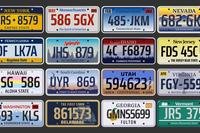As we enter the permanent change-of-station season, many military families will ask themselves: "Should we buy a house?"
If you think the answer might be yes, here are ways to prepare yourself for the challenges of homebuying:
Learn About Homebuying and Mortgages
Buying a house looks easy, but there's a lot to it. Earnest money, debt-to-income ratios, closing costs and promissory notes aren't things that most of us deal with every day. You can buy a house without understanding all these things, but I don't recommend it. Misunderstandings and outright errors can cost you thousands of dollars, or more.
We have a whole homebuying section here at Military.com. There are also books at the library and a ton of information available on the internet.
You can also learn about these topics through classes offered on your installation, online or sometimes through classes offered off base. But I don't recommend classes taught by a person who has a financial interest in selling houses (realtor, mortgage broker, etc.) because they have an inherent conflict of interest and may not present all sides of the situation.
Learn About Homeownership
A recent Bankrate study showed that 44% of homebuyers have regrets about their purchase, and the No. 1 regret is that they didn't understand how much it costs to run and maintain a house.
Everything from move-in costs, such as window coverings, to day-to-day maintenance -- broken door handles, appliance replacement and catastrophic situations like cracked foundations: It all adds up. And when it's your house, it can seem like it never ends. Another big surprise can be the cost of utilities and other services, such as security systems, pest control and gutter cleaning.
Another surprise that I see a lot with my clients is that even a fixed-rate mortgage doesn't mean a fixed mortgage payment. The escrow portion of your mortgage payment will fluctuate with your actual costs, typically including homeowners' insurance and real property taxes, but also possibly including things like homeowners' association fees. Those expenses rarely go down, so you should plan for them to increase over time.
Learn About Landlording
If you're in the military and you're buying a house, there's a possibility that you'll become a landlord at some point. Being a landlord is a huge emotional, legal and financial obligation. You need to understand home repair, marketing, landlord-tenant law, the local real estate market, taxes and a lot of psychology. There's a lot to sort through, but start small and learn a little bit at a time.
One area where I see a shortage of knowledge is in the short- and long-term tax consequences of owning rental real estate. Make sure you understand capital gains laws, particularly the military extension to the capital gains exclusion, and depreciation and depreciation recapture taxes. This is complicated stuff, but you can't make a smart decision unless you understand it.
Once you've got a good handle on these subjects, you can pick a property that will make a profitable rental if you decide or the market dictates that you can't sell. Choosing a good rental is vitally important to military families, because military life is unpredictable and so is the real estate market.
Build Up Your Emergency Funds
As I mentioned before, houses are really good at spending your money. If you don't have savings or extra room in your monthly budget, it will be even harder when things need maintenance or repairs. Build up your emergency fund now, before you are committed to a mortgage.
One technique can help you build an emergency fund and also test your comfort with larger housing expenses: Figure out your total anticipated housing expenses, subtract your current housing expenses, and deposit that extra into a special savings account each month. Not only will you build up your savings but, if you have a month where you can't make the payment or you need to dip into that account, you probably can't afford the new mortgage and associated costs.
Check Your Credit Reports
Mortgage interest rates are directly tied to your credit score, so you want to make sure that your reports are accurate. Get your credit report from the three major credit reporting bureaus: Experian, Equifax and Transunion. Dispute any errors and clear up any little items that you may have missed in the past. Pay off debt to improve your credit utilization rate (and also your debt-to-income ratio.)
Taking these steps now will help you decide whether buying is right for you, and test your readiness to become a homeowner. It's a big decision with many pros and cons, so you don't want to rush it.
An educated, thoughtful decision is almost always better than one made on a whim, and you definitely want to make an educated, thoughtful decision about such a big purchase.





